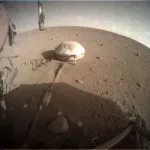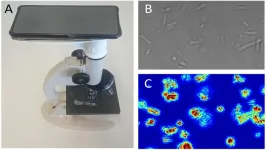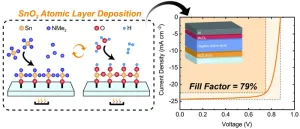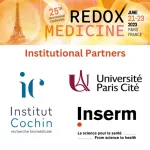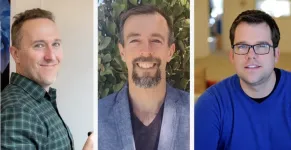(Press-News.org) A new machine-learning method could help us gauge the time of our internal body clock, helping us all make better health decisions, including when and how long to sleep.
The research, which has been conducted by the University of Surrey and the University of Groningen, used a machine learning programme to analyse metabolites in blood to predict the time of our internal circadian timing system.
To date the standard method to determine the timing of the circadian system is to measure the timing of our natural melatonin rhythm, specifically when we start producing melatonin, known as dim light melatonin onset (DLMO).
Professor Debra Skene, co-author of the study from the University of Surrey, said:
“After taking two blood samples from our participants, our method was able to predict the DLMO of individuals with an accuracy comparable or better than previous, more intrusive estimation methods.”
The research team collected a time-series of blood samples from 24 individuals – 12 men and 12 women. All participants were healthy, did not smoke and had regular sleeping schedules seven days before they visited the University clinical research facility. The research team then measured over 130 metabolite rhythms using a targeted metabolomics approach. These metabolite data were then used in a machine learning programme to predict circadian timing.
Professor Skene continued:
"We are excited but cautious about our new approach to predicting DLMO – as it is more convenient and requires less sampling than the tools currently available. While our approach needs to be validated in different populations, it could pave the way to optimise treatments for circadian rhythm sleep disorders and injury recovery.
“Smart devices and wearables offer helpful guidance on sleep patterns – but our research opens the way to truly personalised sleep and meal plans, aligned to our personal biology, with the potential to optimise health and reduce the risks of serious illness associated with poor sleep and mistimed eating."
Professor Roelof Hut, co-author of the study from University of Groningen, said:
“Our results could help to develop an affordable way to estimate our own circadian rhythms that will optimize the timing of behaviors, diagnostic sampling, and treatment.”
The study has been published by PNAS
###
Notes to editors
Professor Debra Skene and Professor Roelof Hut are available for interview upon request however requests will be limited due to their work commitments.
For more information, please contact the University of Surrey's press office via mediarelations@surrey.ac.uk
END
New machine-learning method predicts body clock timing to improve sleep and health decisions
2023-04-24
ELSE PRESS RELEASES FROM THIS DATE:
Health surveys, studies exclude trans people and gender-diverse communities, impacting health care
2023-04-24
ANN ARBOR—Health surveys and clinical studies have a data collection problem: Because of the way they record sex or gender, they often exclude transgender and gender-diverse people, according to University of Michigan research.
Most studies and surveys either ask participants for their sex, a biological construct, or their gender, a social construct. In this way, they only consider either sex or gender independently or use the two concepts interchangeably, says Kate Duchowny, a research assistant professor in the Survey Research Center at the U-M Institute for Social Research.
Participants either respond with their sex assigned at birth or the ...
Scientists detect seismic waves traveling through Martian core for the first time
2023-04-24
Scientists observed seismic waves traveling through Mars’ core for the first time and confirmed model predictions of the core’s composition.
An international research team—which included University of Maryland seismologists—used seismic data acquired by the NASA InSight lander to directly measure properties of Mars’s core, finding a completely liquid iron-alloy core with high percentages of sulfur and oxygen. Published in the Proceedings of the National Academy of Sciences on April 24, 2023, these findings reveal new insights into how Mars formed and geological differences ...
Pioneering research sheds new light on the origins and composition of planet Mars
2023-04-24
A new study has uncovered intriguing insights into the liquid core at the centre of Mars, furthering understanding of the planet’s formation and evolution.
The research, led by the University of Bristol and published in the journal Proceedings of the National Academy of Sciences of the US, reveals the first-ever detections of sound waves travelling into the Martian core. Measurements from this acoustic energy, called seismic waves, indicate its liquid core is slightly denser and smaller than previously thought, and comprises a mixture of iron and numerous other elements.
The ...
Testing antibiotic resistance with a fast, cheap, and easy method
2023-04-24
“We have developed a technique in our laboratories that allows us to obtain an antibiogram within 2-4 hours – instead of the current 24 hours for the most common germs and one month for tuberculosis,” says Dr Sandor Kasas at EPFL. Professor Ronnie Willaert at Vrije Universiteit Brussel adds: “Our technique is not only faster but also simpler and much cheaper than all those existing now.”
Antibiotic resistance happens when bacteria develop the ability to defeat the drugs designed to kill them. It ...
Interfering with antiviral pathway may deter Alzheimer’s disease and frontotemporal dementia
2023-04-24
Targeting part of an antiviral pathway triggered by the accumulation of a key pathogen shared in Alzheimer’s disease and frontotemporal dementia may one day offer a new therapeutic approach to deterring or delaying cognitive decline, according to preclinical research led by Weill Cornell Medicine scientists.
The study, published April 24 in Nature Neuroscience, demonstrates that inhibiting an innate immune system enzyme called cyclic GMP–AMP synthase (cGAS) helps neurons become resilient to the build-up of the protein tau into bundles known as fibrils, a hallmark of Alzheimer’s and some forms of frontotemporal dementia, the two most ...
Outstanding performance of organic solar cell using tin oxide
2023-04-24
Organic solar cells have a photoactive layer that is made from polymers and small molecules. The cells are very thin, can be flexible, and are easy to make. However, the efficiency of these cells is still much below that of conventional silicon-based ones. Applied physicists from the University of Groningen have now fabricated an organic solar cell with an efficiency of over 17 percent, which is in the top range for this type of material. It has the advantage of using an unusual device structure that is produced using a scalable technique. The design involves a conductive layer of tin oxide that is grown ...
Redox Medicine 2023: Where is the target?
2023-04-24
The 25th International Conference on Redox Medicine will take place on June 21-23 in Paris. Redox Medicine 2023 will provide a glimpse into the role of redox in tomorrow’s medicine.
What to Expect in Redox Medicine 2023?
Reactive oxygen species (ROS) have been studied for decades, but the results remain controversial. ROS are beneficial to biological mechanisms, acting as signaling molecules and enhancing immune defense. However, they also have harmful effects, such as causing tissue and organ damage.
Dr. Carole Nicco, stated that “The work and results presented at the Redox Medicine Congress will give ...
Small acts of kindness are frequent and universal, study finds
2023-04-24
Key takeaways
A study by researchers from UCLA, Australia, Ecuador, Germany, the Netherlands and the U.K. found that people around the world signal others for assistance every couple of minutes.
The research, which examined behaviors in towns and rural areas in several different countries, revealed that people comply with these small requests for help far more often than they decline them.
The findings suggest that people from all cultures have more similar cooperative behaviors than prior research has established.
A new study by UCLA sociologist Giovanni Rossi and an international team of collaborators finds that people rely on ...
Department of Energy to support 999 outstanding undergraduate students and 79 faculty members from institutions underrepresented in the scientific research enterprise
2023-04-24
WASHINGTON, DC – The Department of Energy’s (DOE’s) Office of Science will sponsor the participation of 999 undergraduate students and 79 faculty members in three STEM-focused workforce development programs at 16 DOE national laboratories and a national fusion facility during summer 2023. Collectively, these programs ensure DOE and our nation have a strong, sustained workforce trained in the skills needed to address the energy, environment, and national security challenges of today and tomorrow.
“Our future depends on the next generation ...
Metabolism: not the limiting factor in prokaryotic endosymbiosis
2023-04-24
“One of the great mysteries of biology,” says Eric Libby, former SFI Postdoctoral Fellow, now an associate professor at the Integrated Science Lab (IceLab), Umeå University in Sweden, “is eukaryogenesis, or how eukaryotes arose.” Scientists consider this to be a period of major evolutionary transition, critical to our understanding of the history and evolution of life on Earth.
In a new study published on April 21, 2023, in PNAS, Libby worked with SFI Professor Christopher Kempes and Jordan ...

